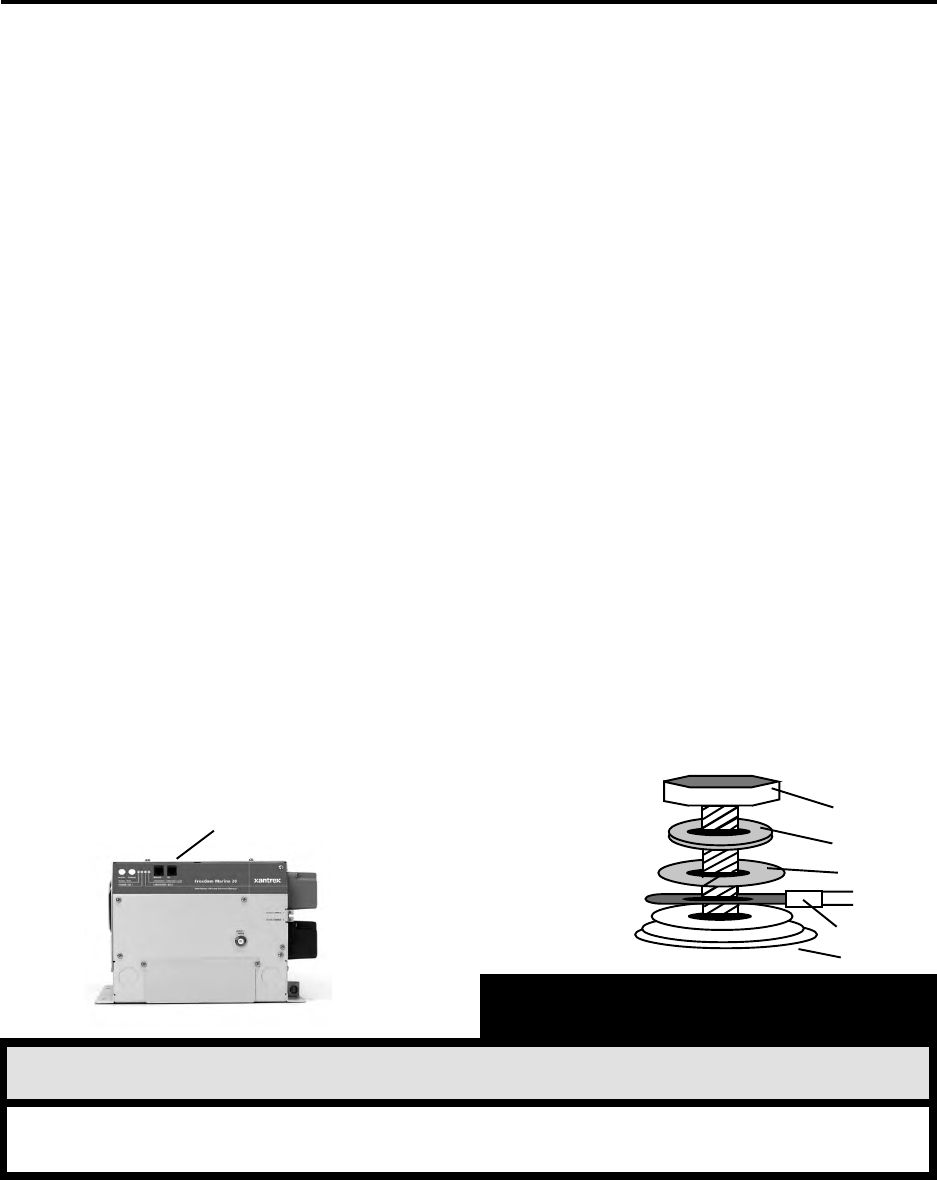
26
DC Wiring
DC wiring is generally very simple—the
positive (+, may be red for identification) and
negative (-, may be black or yellow for
identification) cables from the inverter/charger
terminal posts are connected to the house or
auxiliary battery. Connection to the engine
starter battery is not recommended.
High current will pass through the DC
wiring. All wires must be properly sized and
all connections clean and tight. It is
recommended that the battery cable length
does not exceed 10 feet.
Battery cables should be connected to the
inverter/charger before any connections are
made to the battery. Follow the battery cable
hardware stackup diagram.
• Bolt the negative (-) battery cable with a
3/8'' ring terminal to the negative (black -)
terminal assembly on the side of the inverter.
Tighten the battery terminal bolts to a torque
value between 160 inch-pounds and 180 inch-
pounds (100 inch-pounds for bronze). Secure
the cover on the negative terminal (found in the
accessory package) before connecting the
positive cable.
INSTALLATION
Ground Fault Circult Interrupters
To conform to NEC regulations, certain
branch circuits must be equipped with a
Ground Fault Circuit Interrupter (GFCI).
Consult the code or a qualified marine
electrician for details. Any such branch circuits
must be protected by a branch circuit rated
breaker consistent with the GFCI rating.
Underwriters Laboratories has tested the
following GFCI, and its use is recommended.
Receptacle Type:
Pass & Seymour
Catalog Number 1591
Rated: 15 Amps at 120 Volts AC
Remote Control Wiring
If installing a remote panel, route the
remote cable and connect to the Remote jack
on the front of the unit. Refer to the Remote
Control Panel or Link Owner’s Manual for more
information.
TSC Temperature Sensor
If installing the TSC (Temperature
Sensitive Charging) sensor, connect the ring
terminal end to a battery post, complete the
routing of the RJ11 cable (20 feet supplied) and
connect the plug end to the TSC jack on the
front of the unit
Freedom Inverter/Chargers are not protected against DC reverse polarity. Be very careful to connect the
negative and positive cables correctly or damage will result and the warranty will be void.
WARNING
Battery Cable
Hardware Stackup
Diagram
CAUTION Improper stackup may result in
excessive heat and damage to the unit.
TSC Jack
Freedom Marine 20 shown
Bolt
Lock Washer
Flat Washer
Battery Cable
Inverter/Charger
